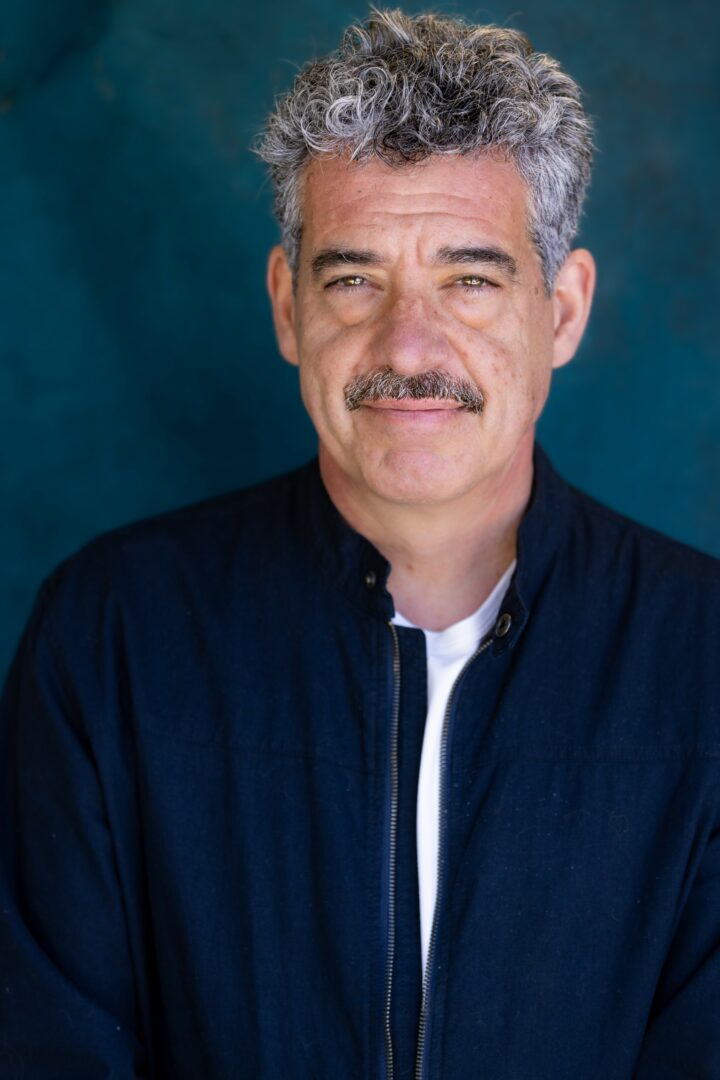We recently had the chance to connect with Oliver Mayer and have shared our conversation below.
Oliver, we’re thrilled to have you with us today. Before we jump into your intro and the heart of the interview, let’s start with a bit of an ice breaker: What do the first 90 minutes of your day look like?
I’ve become a walker. I try to walk 5 miles a day, no matter what temperature. Best is to knock down the first 2 or 3 miles in the morning before it starts to bake. I live off Crenshaw near Leimert Park, and I find my neighborhood endlessly engaging. It’s wonderful to see the various styles of homes and apartments, not to mention the butterflies and small birds enjoying the flowers and fruit. People say that LA is not a walker’s town, but I beg to differ. Just try to get off the main drags and see the neighborhood treasures within.
Can you briefly introduce yourself and share what makes you or your brand unique?
I’m Oliver Mayer. I am a playwright. I wrote my first play at 19 and I just turned 60, and. honestly, it’s about the only thing I know how to do well. Of course, I also write screenplays and essays and poems, but the stage remains my focus and love.
Besides this, I’m a tenured professor of dramatic writing at USC’s School of Dramatic Arts, where I’m also an associate dean. I’ve been there since 2003, and it’s been a joy to introduce undergrad and graduate students to the ocean of playwriting. It may seem counter-intuitive, but in this time of AI I believe that theatre training has become more important than ever. Each of us needs to be able to tell our own story and not rely on GPT-5. More and more, we will see the difference between AI marketing and true human intelligence. I’m happy to pass along the wisdom of Euripides, Lorca, and Shakespeare, and put a little of my own spin on it.
Amazing, so let’s take a moment to go back in time. Who taught you the most about work?
I did not plan on being a playwright. But once I’d written my first two plays, I knew I needed direction. I applied to grad schools and got into Yale and Columbia. Everyone told me to go to Yale, so of course I went to Columbia! Thank goodness I did because I met my mentor, the great Howard Stein, who became a true spiritual godfather. Although he passed at 90 two decades ago, I can still hear his words in my head and see him smiling or frowning at me when I’m in class or at rehearsal. Howard knew so much and had so much to give. His energy was immense and positive, not to mention catching, and his love of drama knew no bounds. I’m not nearly that obsessed! But I do love to teach. And I do think at mentoring is not only giving good counsel or advice when asked. Mentoring happens when no one is aware, when stuff is happening in real time and people are making choices that matter. Mentoring is doing plus caring. Howard taught me that, and I like to pass that knowledge on to whoever will listen.
What did suffering teach you that success never could?
There is a line from my play BLADE TO THE HEAT, when the lead character is feeling lost after having won a boxing championship, and his friend tells him “You got what you wished for. It’s hard to get what you wished for.” I know both sides of this question well. When I was a young writer, I wanted national success, to be considered elite, and, of course, money. I mostly achieved this. But it was staggering how little it turned out to mean and how fleeting the accolades were. For a decade or so thereafter, my career went into a tailspin. I went deep into debt and couldn’t see a way out of my troubles. My only constant was the writing. Rather than use it to chase success, I decided to let it evolve freely and not to ask it to pay my rent. I decided that my writing was more valuable than money or success or any other definition of achievement. I made the choice to write what made me curious, what made me wonder, what made me mad, what awakened romance in me, where I saw injustice in the world. I wrote those things with all the power and learning I could muster within me, and I still do, to this day. Eventually, my luck changed with productions and the teaching job, not to mention marrying the right person. But it was the writing that was key. For each one of us, there ought to be at least one thing that’s more valuable than money. For me it’s the work.
Alright, so if you are open to it, let’s explore some philosophical questions that touch on your values and worldview. What’s a belief or project you’re committed to, no matter how long it takes?
I’m positive that plays are going to mean more than ever to audiences, particularly as we begin to hit the hard limitations of life on screens of one size or another and see that intelligence means more than factoids. There is one big caveat though: We need to write about real things, real feelings, real problems. We can still be funny, but we must be real. We also need to be able to occasionally go off-color and not worry about cancelation. Playwriting allows you to write beyond your own skin. That is an amazing, almost magic, power, because if you’re doing it right you should be able to traverse race, sexuality, and other big identifiers. That’s a lot of responsibility, but the best way to handle it is to just do it and to keep a sense of humor about it. If we do all this right, then we convey fearlessness and community, even while we entertain. It’s a lot to ask, I know. But I am firmly with Goethe, who says that “at the moment of commitment, the universe conspires to assist you.” How can you disagree with that?
Okay, we’ve made it essentially to the end. One last question before you go. What are you doing today that won’t pay off for 7–10 years?
In my business, nothing moves fast. The work itself can take months, years, or decades to finish. Then of course there’s getting it out into the world to the people that can help bring it life — even a one-person show takes loads of people to get it on its feet. Large and small theater institutions are infamous for taking forever to decide on productions. It’s not unusual for a new play to take 3-5 years to get a first production. So just about everything I write won’t pay off, at least in productions, for many years. That’s why it’s so important that it pays off in other ways. I seek enjoyment in the process and fulfillment in the immersing of my heart and mind into the writing. Of course, some days are harder than others. I’ve learned not to beat myself up too much when it gets slow-going or when I get truly flummoxed and don’t know where I’m going. Writing is a lot like crossing a room in the dark. You bump up against things and you might even trip. But you are likely to get to the other side of the room eventually and find either the door or a light switch. You’ve just got to keep going. Over time, you learn to see better in the dark.
Contact Info:
- Website: https://olivermayer.com
- Other: https://dramaticarts.usc.edu/oliver-mayer/
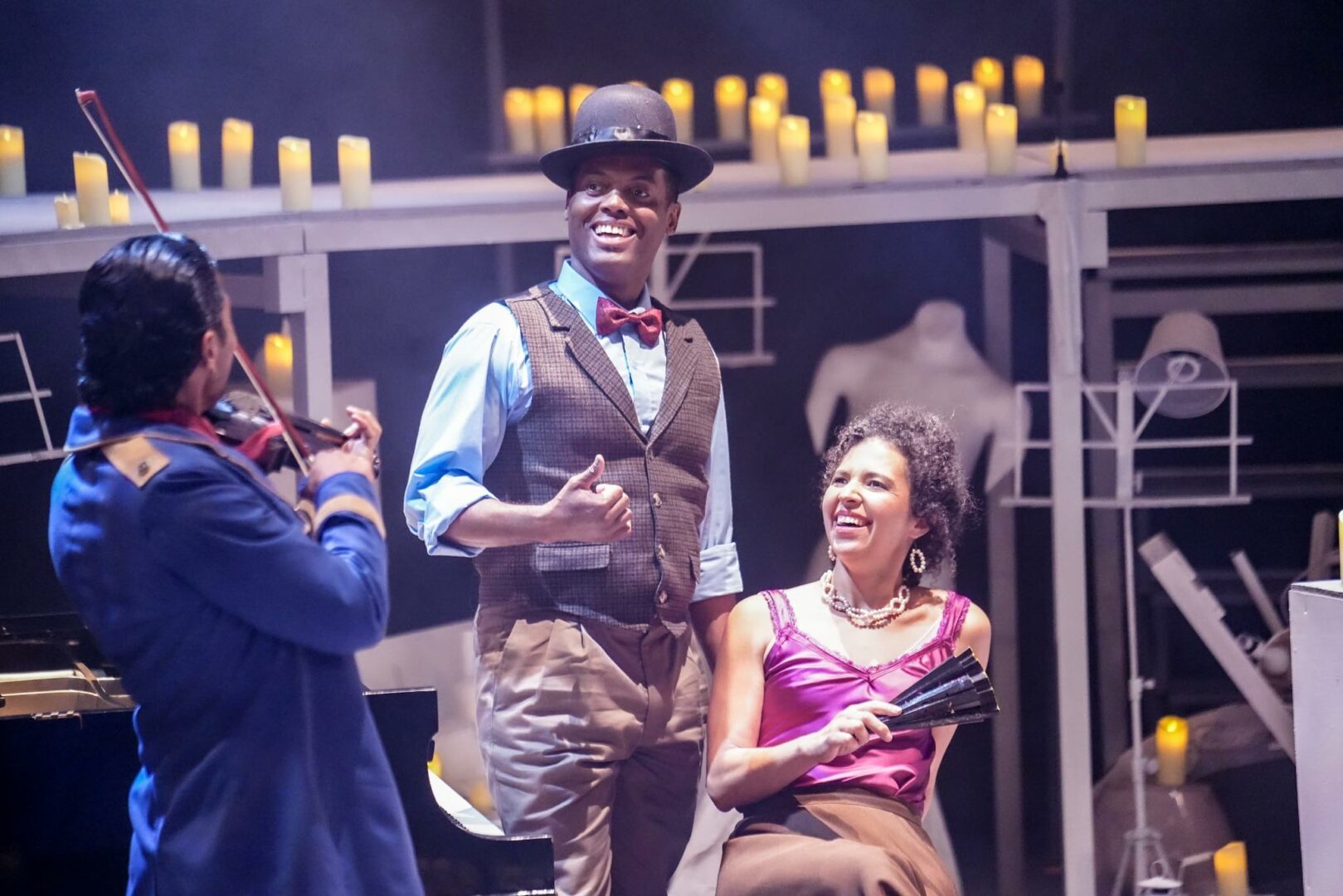
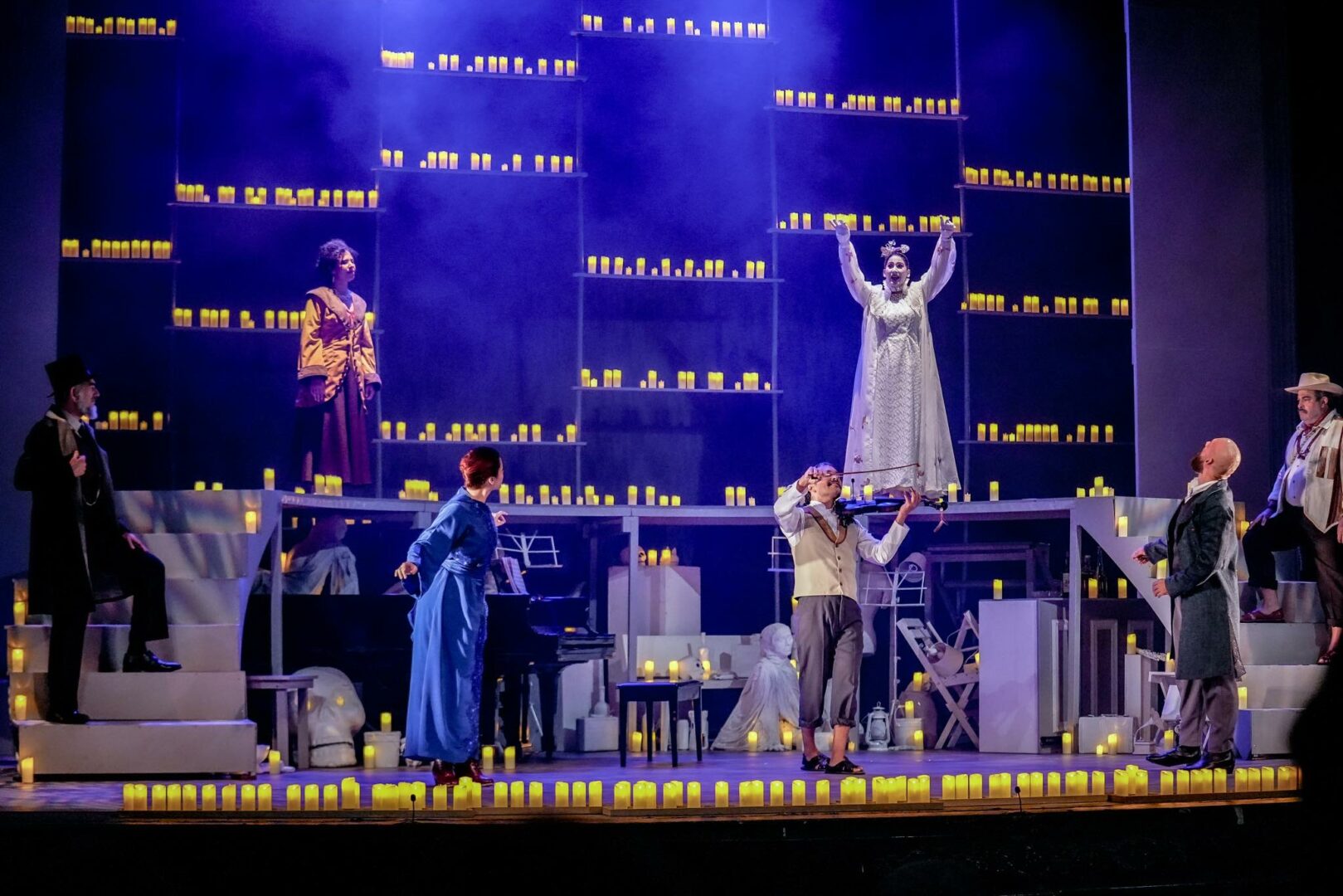
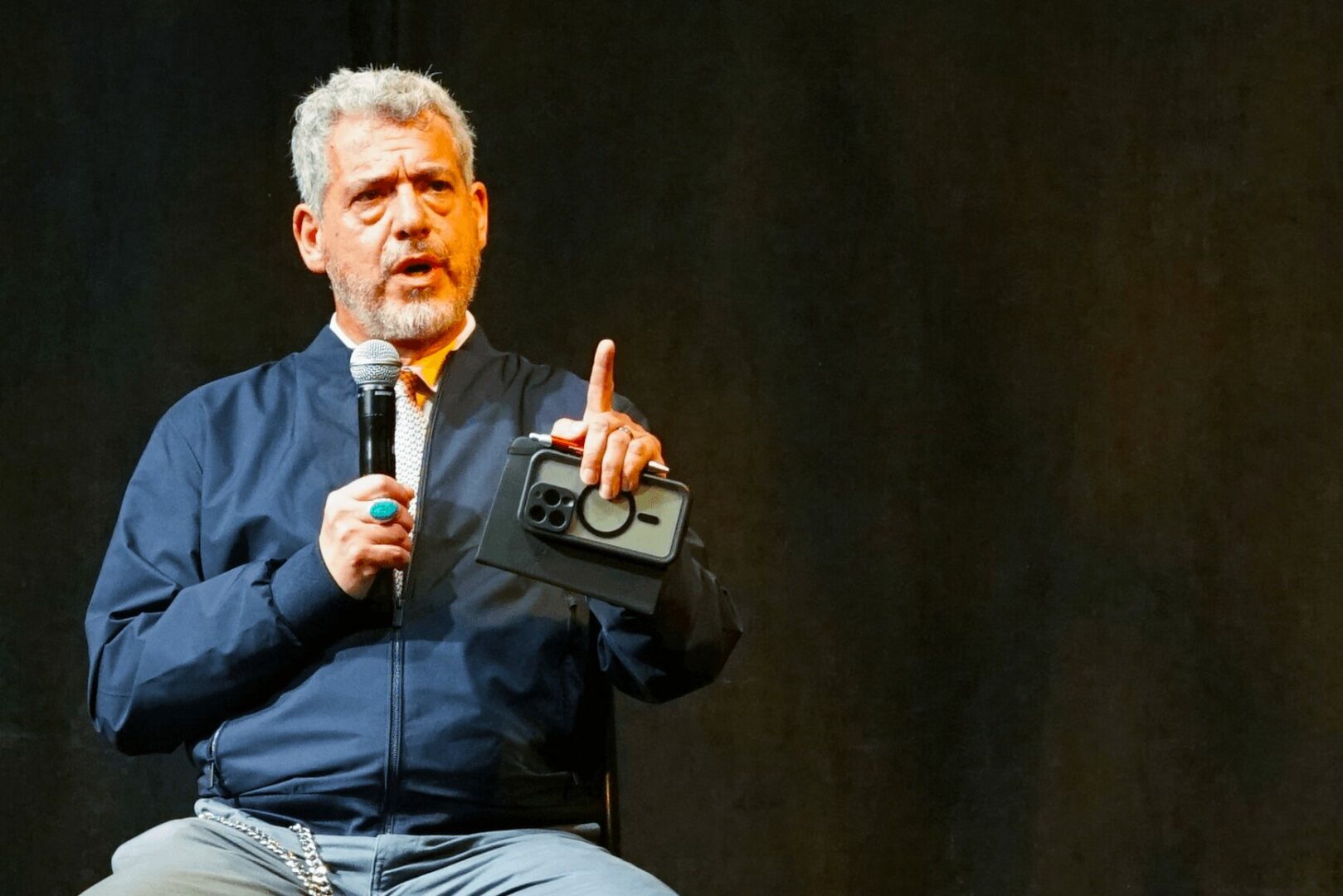
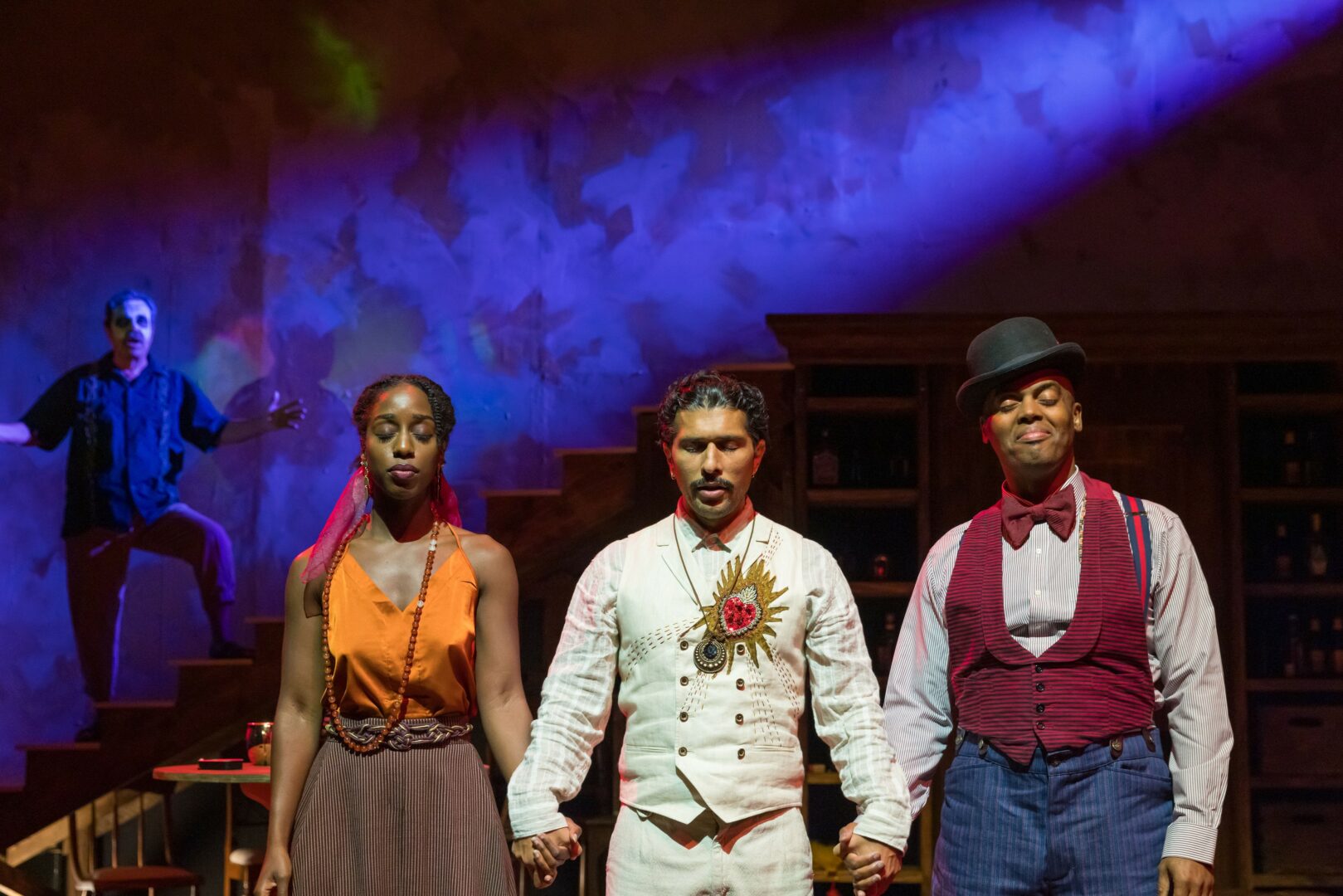
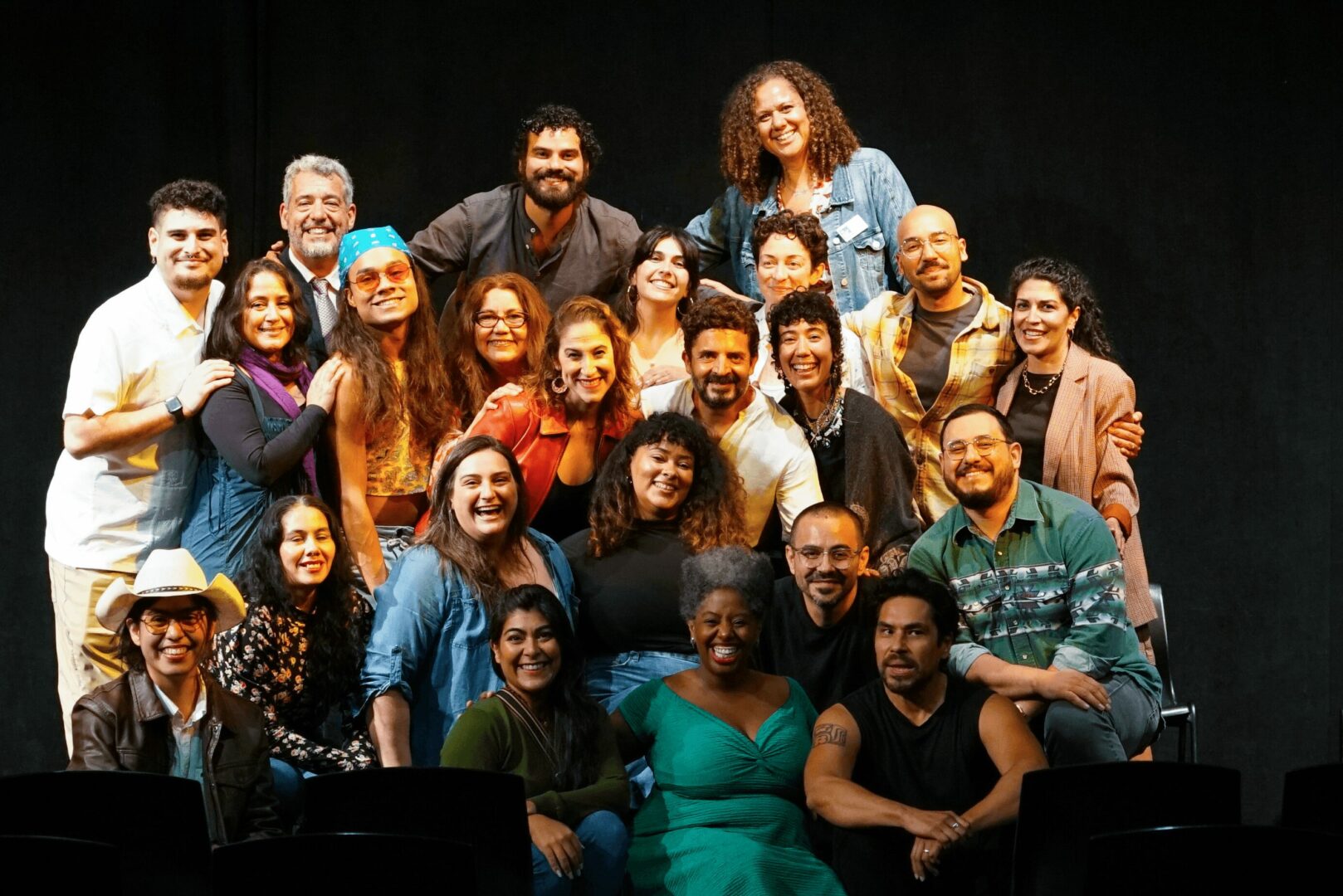


Image Credits
headshot by Julian Conde
so if you or someone you know deserves recognition please let us know here.

